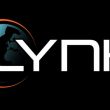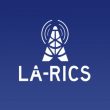Beware of poor and illegal advice
Apparently, I struck a nerve with my column about signal boosters. That column generated more e-mails than any column I’ve written in the past twenty years, and that includes the current 800 MHz interference fiasco. The following is typical of the comments I received:
“We, as an industry, need to speak out as you have and address the pervasive issue of poorly designed BDA/in-building systems and the resultant interference and disruption they can cause — right on!”
It would appear from some of the questions I received, however, that I might not have been clear enough in some of my statements. Therefore, I thought I would take this opportunity to clarify a couple of points:
Q: Our county uses Nextel for many non-emergency applications. Are we allowed to install a BDA in one of our buildings, or is this something that can only be done by Nextel?
A: Although BDAs and signal boosters do not need to be separately licensed, Sections 90.203(a)(2) and 90.213(e) provide that only the licensee (or applicant for a new station authorization) may operate these devices without separate authorization. Therefore you cannot operate a BDA or signal booster without the authorization of the licensee.
Q: If one were to follow the letter of the law, would all emitters in this spectrum band and geographical area be required to sign off on the use of the broadband BDA?
A: Yes. If you’re using a broadband booster to amplify Nextel’s signal, you’re also boosting the signal of everyone else in the band, including public-safety systems. Therefore, each would need to give permission for the broadband booster to be used.
Though achieving a better signal may sound like a great idea, a booster that’s not professionally installed might cause interference. That interference might come in the form of amplifying some public-safety licensee’s signal beyond their service area, causing interference to a co-channel licensee. Or, it might come in the form of the “halo” effect that a booster can have, which would create a “ring” at a distance away from the booster where the original signal and the boosted signal would interfere with each another.
Unfortunately, it appears that at least some manufacturers are selling boosters intended to amplify a Nextel signal, and specifically telling customers no permission is needed (or simply failing to mention anything about the issue). For example, one such company has an online customer forum, and a customer recently asked whether licensing or permission were required, and the moderator said no.
When I saw the incorrect answer, I posted my own analysis, and gave complete information about myself, so that readers would understand my background in answering the question. Within twenty-four hours the moderator had removed my posting! Not a response from the moderator saying I was wrong (and why), just a complete removal. I posted the same response twice more in different parts of the forum where the same question had come up. In each case, my post (and eventually the entire topic) was removed. My rights to post on the forum have been removed, too. Ridiculously, the moderator now says that it’s not the company’s position to give out legal advice, hence the removal of my post. Funny, somehow that didn’t apply to their original response in the forum.
The FCC recently issued a Consumer Advisory, asking for information concerning the sale of allegedly illegal (non-FCC certified) equipment. While the equipment sold by the aforementioned company isn’t technically illegal, its unauthorized use certainly is. This would seem a good place for the FCC to start its effort.
Alan Tilles is counsel to numerous entities in the private radio, Internet and entertainment industries. He is a partner in the law firm of Shulman Rogers Gandal Pordy & Ecker, and can be reached at [email protected].

















